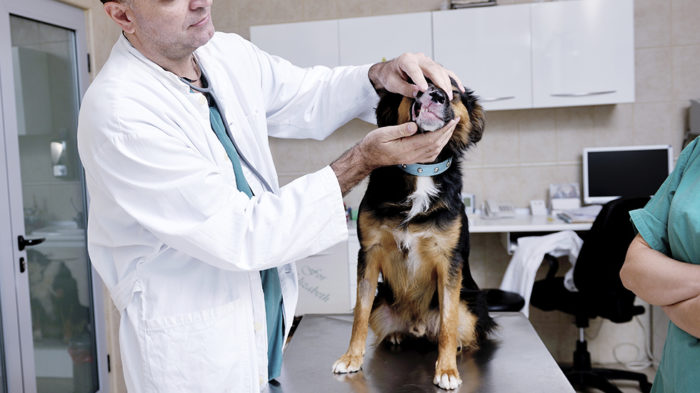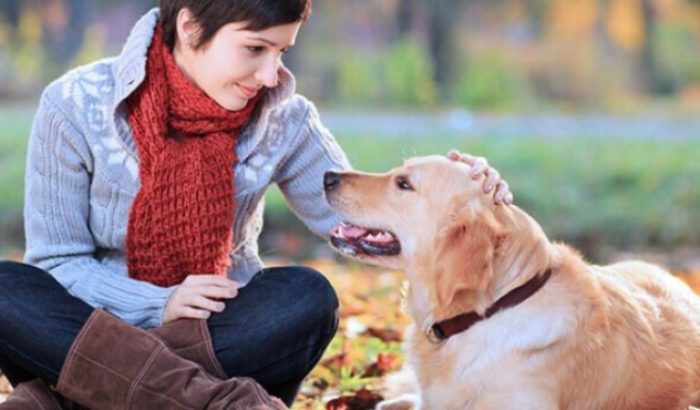Having a senior dog as a household pet is a tasking job that requires the pet parent or caregiver to pay extra attention to certain needs. While caring for senior dogs, the canine’s nutritional need is something that cannot be overlooked. Again, physical and mental exercise becomes even more crucial as a dog advances in age, and pet parents should not joke with an aging dog’s oral health. By taking care of your dog’s oral health, you will be able to avoid painful periodontal diseases that call for the attention of the vet.
Table of Contents
Caring For Senior Dogs – Tips For Keeping Your Old Pooch Happy
Pet parents who adopt newborn puppies must make some sacrifices to keep the rambunctious pup safe and comfortable. In the same way, if you keep a senior dog, several adjustments will have to be made for the dog’s benefit. Some of the tips for taking care of aging dogs are listed below.
1. Set Up Bi-annual Vet Visits

As your canine friend gets older, it won’t be a bad idea to increase its wellness examination from once yearly to twice yearly. By so doing, pet parents will be able to establish a baseline for the health of their dogs. This equally ensures that any hidden health abnormalities in the canine’s body are exposed sooner than later.
2. Maintain a Healthy Diet
In as much as it is tempting to indulge your aging dog, keeping its diet balanced and healthy is more important. Try to avoid excessive calories for older dogs as it may likely result in inflammation and unnecessary weight gain; these can reduce your pooch’s quality of life.
3. Introduce Supplements With Your Vet’s Guidance
It is not enough to give your aging dog a balanced and healthy diet, pet parents should also introduce food supplements, but this must be recommended by a vet. The list of supplements to give your dog include:
- Fish oil (this is good for the bones, joints, coat, and skin)
- Glucosamine (good for joints)
- Probiotics (this is good for digestive health)
- Regular consumption of these supplements over time will make a huge difference in the life of an aging dog. You don’t even need to administer them separately, just have them added to your pooch’s regular meal
4. Look Out For Any Subtle Signs of Discomfort
Since members of the canine population cannot talk, the onus is on you as the caregiver to be very observant. Always check for signs that might indicate distress. The symptoms of distress may include:
- Limping
- Difficulties changing position
- Din jumping or climbing stairs
- Lying down while eating or drinking
All these signs are indications that your canine companion is due for a visit to the vet.
5. Monitor (and mix up) the activity level of your dog
Old age in dogs does not mean the end of walks and playtime. At this stage in its life, a pup may need additional encouragement to stay active. However, care should be taken not to overdo things. Pet owners should always be on hand to monitor a senior dog’s exercise session – just follow the canine’s lead and never force them to go beyond their strength. Introducing new activities at this stage wouldn’t be a bad idea. For a dog breed that is not averse to water, swimming can be introduced – this is good for the joints and greatly helps in weight management.
6. Play Some Brain Games
For a senior pup, mental exercise is about as important as physical exercise. Your dog’s brain must be kept sharp and stimulating at all times. Introduce such activities like ;
- Hide-and-seek
- Puzzle toys
- Treat “scavenger hunts”
These mental stimulations aid in keeping your pooch in tip-top cognitive shape. Besides, both the dog and the owner will have loads of fun from the experience.
7. Go For Adventures
It is recommended that pet parents spend quality time with their canine friends; however, engaging in this kind of adventure regularly becomes even more important as the dog gets older. Make the most of every single moment you spend with your dog – give your pooch new sights, sounds, and smells to explore. Take the dog to explore a nearby beach, forest reserve, or park that is way off your regular adventure route. This fun outing will not only brighten up your dog’s day, but you will also benefit from it.
8. Add in Extra Grooming Sessions
Self-grooming becomes a tougher task as a dog gets older. At this stage, pet parents will have to come up with additional grooming sessions with regular brushing. Additional baths should be factored in for a dog that that is battling with incontinence. This not only keeps your four-legged buddy in tip-top condition, but it will also afford the owner an opportunity to check the dog’s body for bumps, lumps, as well as areas of irritation.
Read Also: 10 Warning Signs Your Dog is Dying and What You Can Do
9. The Importance of Dental Care in Senior Dogs Cannot be Overemphasized
As you groom your aging dog, it is crucial for pet parents to emphasize oral care. With senior dogs, oral health issues such as cracked teeth and gum disease can be quite common. These are very painful and serious dental conditions that call for the attention of a vet.
Even if teeth brushing has not been regular while the dog was younger, it is imperative that you increase it as the dog gets older. Dog-friendly toothpaste and finger brush are all you need to take care of your senior dog’s oral hygiene. Placing your finger at an angle of 45-degree, use gentle circular movements to scrub at the pup’s gum line. Get in touch with your local vet whenever you notice symptoms like bleeding, resistance, as well as signs of pain.
10. Make Some Home Updates
In the same way that you made your home puppy-proof when you brought the dog home in its early days, you will also make effort towards optimizing your living space for the needs of your aging dog. You can consider switching the canine’s old bed for a heated option or an orthopedic mattress. Rugs can be used in covering slippery surfaces such as wood and tiles, and you can set up pet stairs next to the dog’s favorite furniture. The aim here is to keep your senior dog as comfortable and safe as possible. This also aids the dog in maintaining some level of independence even as it slows down.
Summary Of What You Need To Know About Caring For Senior Dogs
- Set Up Bi-annual Vet Visits
- Maintain a Healthy Diet
- Introduce Supplements With Your Vet’s Guidance
- Look Out For Any Subtle Signs of Discomfort
- Monitor (and mix up) the activity level of your dog
- Play Some Brain Games
- Go For Adventures
- Add in Extra Grooming Sessions
- The Importance of Dental Care in Senior Dogs Cannot be Overemphasized
- Make Some Home Updates
